
Based on additional history, you determine that these symptoms began at age 3, and are associated with multiple fears (vomiting, storms, public bathrooms, parents' dying), bedtime checking rituals, and involuntary motor and vocal tics such as facial grimacing and throat clearing. She has recurrent UTIs, but is otherwise healthy. There is no history of trauma/abuse. She has been receiving CBT for the last year, and is not on any meds.
What diagnoses are on your differential? What further information would help you distinguish between these diagnoses? What treatment would you suggest?
"A girl repeatedly jabs her finger up her nose: Compulsion or self-injury?" by Butkus M and Vinch J (Current Psychiatry).
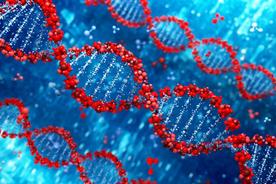
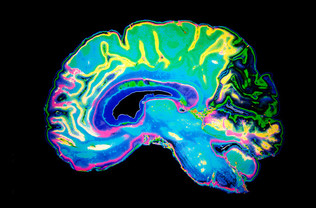
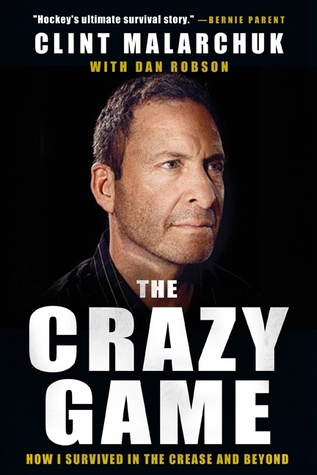

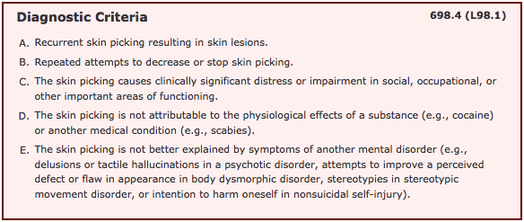
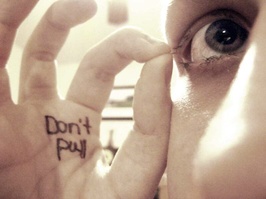
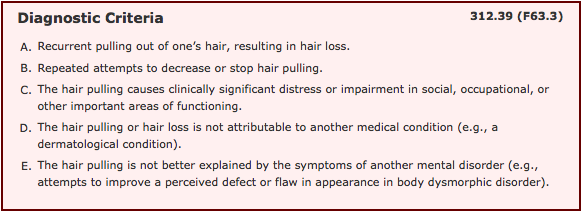
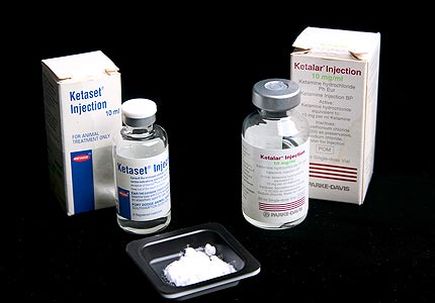
 RSS Feed
RSS Feed
